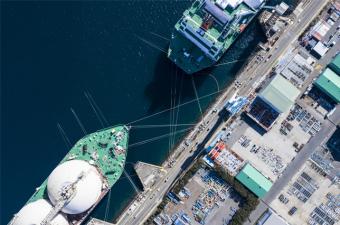
OVERVIEW
Who can limit their liabilities under the Limitation Convention 1976? Shipowners and salvors.
What is a “shipowner”? The owner, charterer, manager or operator of a ship.
But what is a “manager”, and what is an “operator”?
The Admiralty Court has just handed down its first-ever judgment on this question.
In November 2016 a large dumb barge was moored off Dover. Storm Angus struck, with storm force winds up to force 9, and the barge dragged its anchor. RTE own the England-France electricity connection. They allege that the barge’s anchor tripped an undersea cable causing €55 million worth of damage. Parties interested in the barge claimed to be entitled to limit their liabilities (if any) to about £5.5 million, based on tonnage.
It was accepted by RTE that the owners and charterers of the barge can limit their liabilities. But they denied that a third entity, Stema UK, could limit its liability. They said that Stema UK merely provided some services to the barge, but was not “the operator” or “the manager”. Teare J disagreed, and held that Stema UK was entitled to limit is alleged liability.
RTE argued that Stema UK’s true role was as the buyer of the cargo of rock armour carried by the barge, transhipped to a smaller barge off Dover, and delivered to the beach for use in the repair of a railway line. It was said that any actions which Stema UK took in relation to the barge were merely incidental to that role, and certainly did not make Stema UK the operator of the barge.
There was no doubt that the owners and/or charterers of the barge were also its operators and managers for the laden voyage from the Norway, where the cargo was quarried. However, Stema UK was involved in the anchoring off Dover: the Managing Director of Stema UK chose the anchorage area for Stema UK’s operational convenience, and the area was approved by the Marine Management Organisation. When the barge arrived, under tow, a Stema UK Barge Master and crewman boarded the barge and dropped the anchor.
After anchoring, the nature and range of tasks required to operate the barge were rather limited compared with any regular, manned cargo vessel. The Barge Master and crewman prepared the barge for being left unmanned, such as by setting navigation lights, and ensuring that the emergency towing wire was out and ready for use. Whilst at anchor, during the transhipment of the cargo, the same personnel ballasted the barge and maintained its generators. A detailed check-list was followed.
Stema UK also monitored the position of the barge and monitored the weather. When the weather forecasts worsened, Stema UK worked with the owner and charterer in deciding whether to leave the barge where it was or tow it to a place of shelter.
There is no previous authority on the meaning of operator or manager in the 1976 Convention, or in the 1958 Limitation Convention. In the absence of authority, some textbooks rely upon an Australian Federal Court decision on the meaning of ship “operation” in the rather different context of section 10 of the Australian Navigation Act. RTE relied on the travaux préparatoires of the 1976 Convention, the textbooks and the Australian case, and a range of industry dictionary definitions, to argue that engaging in some operating was not enough. It was said that being “the operator” required something more: direct responsibility for the management and control of the ship as regards commercial, technical and crewing operations.
Teare J explained that the meaning of operator is closely related to the meaning of manager, and so it is difficult to discuss the meaning of one without having an understanding of the meaning of the other. The learned judge traced the extent of shipowners’ and therefore managers’ duties in older commentary and authorities, up to the introduction of the ISM Code, and into the BIMCO SHIPMAN ship management agreement. Managers may be responsible for all safety, manning, technical and commercial tasks relating to a ship, or only for some of them.
Teare J held that under the 1976 Limitation Convention, a “manager” is the person entrusted by the owner with sufficient of the tasks involved in ensuring that a vessel is safely operated, properly manned, properly maintained and profitably employed to justify describing that person as the manager of the ship. If a person is entrusted with just one limited task it may be inappropriate to describe that person as the manager of the ship.
Turning to the meaning of “operator”, the learned judge decided that it includes the manager, and that in many cases involving conventional merchant ships there may be little scope for operator to have any wider meaning. However, Teare J noted that this case did not involve a conventional merchant ship. It involved a dumb barge, requiring far less by way of operation. In the case of a dumb barge, operator includes those who, with permission of the owner, send their employees on board with instructions to operate the ship’s machinery in the ordinary course of the ship’s business.
This is what Stema UK did. Even if some part of the operation of the barge remained with the charterer, Stema UK can therefore limit its alleged liability.
It remains to be seen where the line will be drawn in terms of how many of a vessel’s management tasks must be undertaken by an entity entitled to limit as a “manager”. There will also be further arguments about the extent to which an operator might be different from a manager.
John Passmore QC represented the limitation claimants, including the operator Stema UK. He worked with Alistair Johnston, Maria Borg Barthet, Danyel White, Debo Fletcher and Christopher Chane at Campbell Johnston Clark. John and CJC also worked with Stewart Buckingham QC in a related collision action against a cargo vessel called SAGA SKY. Chirag Karia QC represented RTE. Nigel Jacobs QC and Nichola Warrender represented the owners of SAGA SKY.

